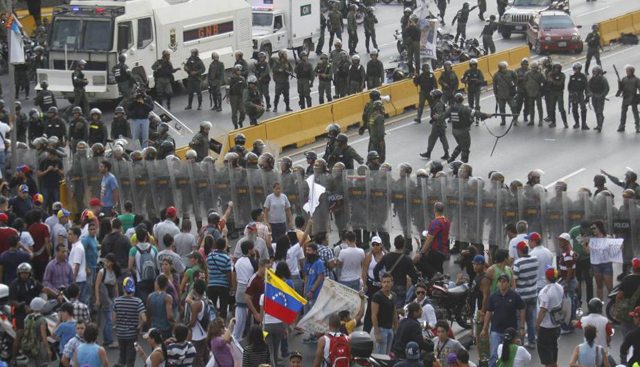
Protestors demanding a recounts of votes
As days pass, Venezuela sinks deeper into crisis after the close results of the divisive April 14 presidential elections have sent people to the streets demanding a recount.
Opposition leader Henrique Capriles Radonski and his supporters have demanded an audit after evidence of electoral fraud surfaced. But on Wednesday, Venezuela’s Supreme Court rejected the opposition’s request.
Announced winner, Nicolas Maduro has promised to “continue Hugo Chavez’s revolution” but the new leader seems to be struggling to maintain power in the midst of the country’s turbulent situation. In contrast to the deceased president – who enjoyed at least a 10 percent advantage against his political opponents- Nicolas Maduro barely slid by with a 1 percent margin.
But Maduro’s concerns are not only political. Venezuela’s damaged economy has spiked inflation to world-record levels and grave shortages in food and personal care items follow suite.
The situation in Venezuela is shrouded in tense mystery as there seems to be no semblance of a resolution imminent. The opposition continues to protest for an electoral audit and the government continues to refuse – demeaning a recount “impossible“. And thus rampant protests and dissidence continue to rage. Photos and videos surfacing from the chaos look like images of a war-torn country. In the midst of these issues, people wonder if Nicolas Maduro will be able to hold on to power.
Here is the most recent news about the unstable Venezuela:
1. U.S Does Not Recognize Nicolas Maduro as Venezuelan President
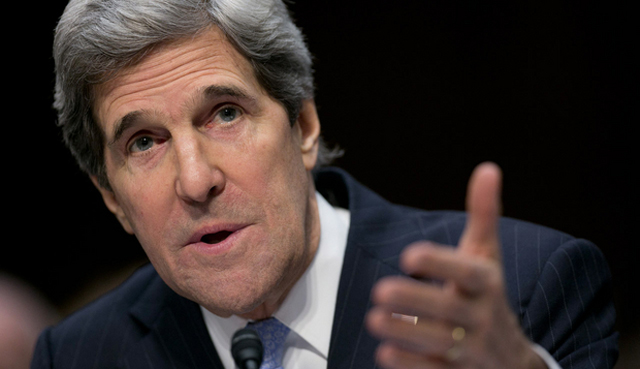
Secretary of State John Kerry
The Obama administration is refusing to recognize Nicolas Maduro and says a recount of this week’s election need occur.
Before Congress, Secretary of State John Kerry backed the call by opposition leader Henrique Capriles for the vote count of Sunday’s presidential election to be re-examined. The White House published the following statement.
The United States congratulates the Venezuelan people for their participation in the April 14 presidential elections in a peaceful and orderly manner. We call on the Venezuelan government to respect the rights of Venezuelan citizens to peaceful assembly and free speech. We also urge everyone to refrain from violence and other measure that could raise tensions at this difficult moment. The United States notes the acceptance by both candidates for an audit of the ballots and supports calls for a credible and transparent process to reassure the Venezuelan people regarding the results. Such a process would contribute to political dialogue and help advance the country’s democracy.
In response to the U.S’ declaration, Maduro has stated on a televised address that he “does not care” whether the United States recognizes his election victory.”Don’t recognize anything. Your recognition does not matter to us.”
Maduro’s pro-Cuba and anti-Capitalist stance would mean a continuation of Hugo Chavez’ anti-American rhetoric.
2. A Warrant for Arrest Has Been Placed on Opposition Leader Capriles
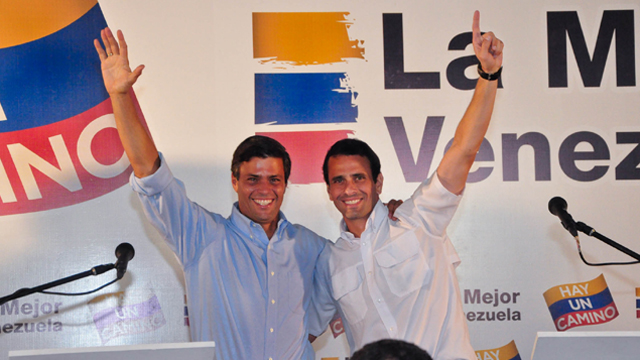
Henrique Capriles (right) with ex-mayor Leopoldo Lopez
Opposition presidential candidate Capriles and ex-Mayor Leopoldo Lopez are facing possible arrest for “provoking violence” and for not recognizing Hugo Chavez’s successor — Nicolas Maduro’s — as president.Through a contact within the government, Henrique Capriles and Leopoldo Lopez were informed that the government had put into motion a warrant for their arrest.
Lopez responded on social media sites with the following statement:
“Its not a rumor! My contacts confirm that there are detainment orders against me and Henrique Capriles. I reveal this persecution to the country and the word! The orders have been prepared by criminal court. The court that deals with terrorism….What do they want to accuse us of? Of demanding the right to a recount?…the government has ordered armed groups to dress up like Capriles supporters and generate violence…I have nothing to fear! Truth is on our side.
Both sides continue to blame each other for the surge of protest violence that has left at least 7 dead.
3. There is a Grave Economic Crisis
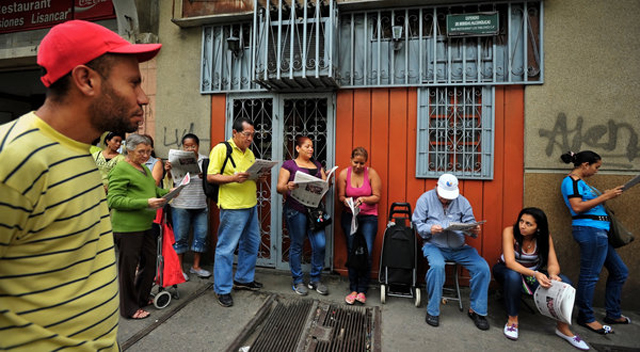
Venezuelans wait in line for basic groceries
Oil-rich Venezuela is now experiencing one of the highest inflation rates in the continent; spiking to an annual rate of 40%. At the black market rate, the Venezuela ‘Bolivar’ is worth a quarter of its official value. This has spiraled shortages of basic food and personal care items. Waiting in line for basic groceries has become part of people’s daily routine. Some believe this is part of the reason for which nearly 1 million voters that had previously voted for Hugo Chavez during the countries last presidential elections – cast their ballots for Capriles Radonski this time around.
With shaky political ground and an equally unstable economy, many wonder if Nicolas Maduro will be able to maintain power, unify his supporters and lead the country forward.
4. Opposition Representatives Have Been Kicked Out of Congress
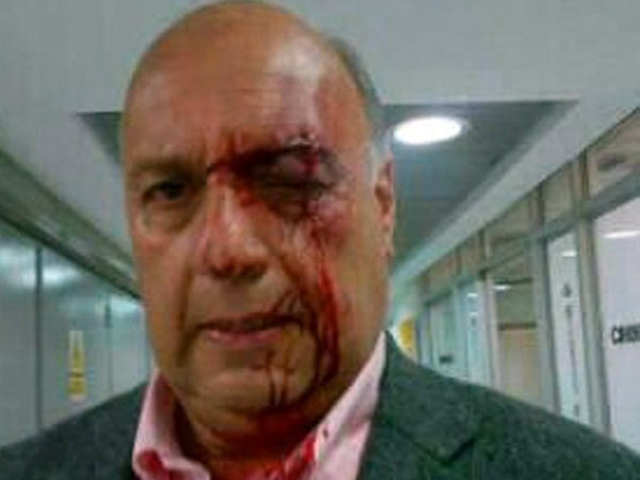
Opposition Representative Davila after being attacked during National Council meeting
Capriles and Lopez are not the only opposition politicians that have been persecuted by Maduro’s government. Monday night Diosdado Cabello — Maduro-supporter and head of the National Assembly — kicked out all opposition representatives from their positions in government. Two opposition representative, Julio Borges and William Davila, were beaten during an official meeting in the National Council, “Pro-government representatives…insulted me and hit my face… an object was thrown towards him [Davila]. He is getting stitches.”
5. Maduro Has Threatened Crack Down
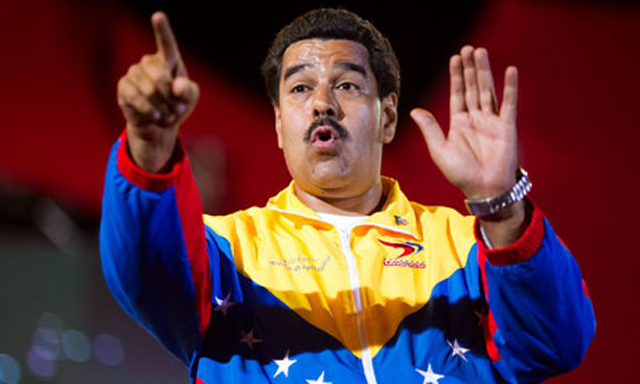
Nicolas Maduro
Maduro has vowed that if the opposition continues to protest the electoral results, “what we can do is to radicalize this revolution.” The third time Maduro broke into regular television and radio programming, he cut off the broadcast of Capriles’s news conference. He told his supporters to play loud music and shoot off fireworks each night to drown out the opposition’s pots and pans protest.